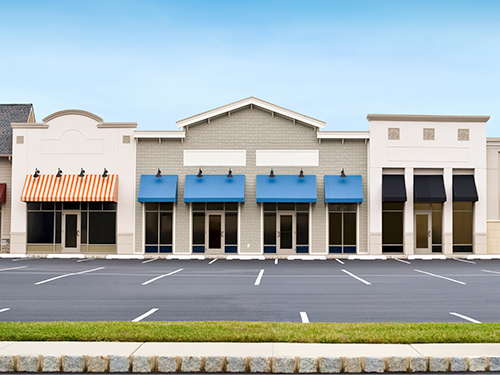Starting a business is an exciting journey, but when it comes to finding the right commercial space, many first-time business owners find themselves overwhelmed. The process of navigating commercial rentals can be confusing, especially when balancing budget, location, lease terms, and long-term growth.
If you’re launching your first venture in Hanover or Gettysburg, PA, understanding how to choose and lease the right commercial property can make all the difference. Business owners who have partnered with us at Trone Rental Properties have been able to find well-located, professional spaces that align with their goals—and now we’re here to help guide you every step of the way.
Understanding the Basics of Commercial Leasing
Before you dive into commercial rentals, it’s important to understand how they differ from residential leases. To start, commercial leases are typically longer in duration. They also have a different legal structure from residential leases. This makes it essential to read every clause carefully and ask questions if anything is unclear.
Commercial spaces come in different forms: retail storefronts, office buildings, industrial warehouses, and mixed-use spaces. Your business type will largely determine the kind of property you need, and signing a lease for a well-suited space is crucial to your business’s success.
While a boutique clothing store in downtown Gettysburg can thrive in a small storefront, a logistics operation would need the space offered by a warehouse to be successful. As a first-time business owner, identifying the ideal property type for your business is going to be a critical first step.
What to Look For in a Commercial Rental
Choosing the right space isn’t just about square footage—it’s about functionality, flexibility, and fit. Consider how you’ll utilize the space. Will you need private offices, open areas for desks, storage rooms, or customer-facing areas? Will the space support your growth over the next several years, or will it quickly become a hindrance?
Pay attention to the layout, lighting, HVAC systems, and even the age of the building. Older buildings in Gettysburg may offer charm and character that align with your brand, while newer properties in Hanover might provide modern infrastructure that supports high-speed internet and energy efficiency.
Determining the basic needs of your business should be done before you even start looking at properties. This provides a springboard that helps you to be more intentional and focused with your property inquiries. Not only does this save you time by avoiding discussions over properties that are not a good fit, but it also helps property managers identify potential properties in their current portfolios.
Why Location Matters More Than You Think
Along with the infrastructure of your business’s future home base, its location has the potential to make or break your success. Being close to your target market, suppliers, and even complementary businesses can significantly impact how your business performs.
In places like Hanover and Gettysburg, PA, different neighborhoods cater to different needs. Gettysburg’s charming and historic downtown tends to draw foot traffic and tourists, making it ideal for retail or service-based businesses. Hanover, on the other hand, offers more industrial and office space options, which are perfect for startups in manufacturing, logistics, or professional services.
Accessibility also plays a role. Consider whether your clients can find parking, whether delivery trucks can access your facility, and whether employees can easily commute to work. Take the time to explore available commercial spaces and their surroundings, and get a sense of whether the location will support your business’s needs or create roadblocks.
Zoning, Permits, and Legal Considerations
When you do find a property that strikes your interest, you’ll need to confirm that it is zoned for your type of business. Zoning laws vary from town to town and can dictate what activities are permitted in a specific location. Failing to perform due diligence on this matter could lead you to discovering that your new commercial space doesn’t allow for the necessary business operations.
Depending on your industry, you may also need permits for signage, construction, or health and safety compliance. Local municipalities in Gettysburg and Hanover have their own unique regulations, and navigating them without guidance can delay your opening. This makes partnering with a local property management company a strategic decision. You will be able to utilize their local knowledge and experience to make informed choices.
By learning the specific zoning and permit laws of any commercial property you are considering, you can identify red flags early. This means you will be able to either move on to a different commercial property or determine the resources you will need to ensure a smooth transition into your new space.
Understanding Lease Terms
Once you express interest in a property and begin reviewing the lease, comprehension is key. Leases often include clauses about rent increases, renewal options, maintenance responsibilities, and property modifications. Each of these elements plays a role in how your business will function in the space.
One part of the lease that will likely be of most immediate interest to you is the alterations and improvements clause. This clause outlines what modifications you can make to the property during your tenancy. Your adherence to these terms is important for numerous reasons.
For one, property managers place limitations on property alterations to protect its integrity and value. This ensures that the property can be used for many years to come. Your adherence also demonstrates that you are a reliable commercial tenant. This helps to build a strong tenant-property manager relationship, which is an invaluable business connection to have. Lastly, by preserving the property, you ensure that you will qualify to receive your security deposit back if and when you leave the space.
Along with understanding property use guidelines, familiarize yourself with any additional responsibilities that are included as part of your tenancy. On the legal side, you should find information on any tax responsibilities associated with the property and whether they fall to you or are paid by the landlord. There will also be clauses detailing insurance requirements, property maintenance, and utility responsibilities.
Lastly, with your business’s future in mind, understand what options you will have for lease renewal. This will enable you to have a plan in place as you approach the end of your lease. Taking the time to read over your lease agreement and understand it is a vital step in safeguarding your business’s interests and your relationship with your future property manager.
Budgeting for Your First Commercial Lease
Many new business owners underestimate the true cost of leasing a commercial space. Beyond monthly rent, there may be charges for maintenance, utilities, property taxes, and insurance. These are often included in what’s known as a triple net lease, where the tenant is responsible for all operating expenses in addition to rent.
It’s crucial to develop a realistic budget that includes not only these expenses but also build-out or renovation costs, moving expenses, and the cost of furnishing the space. Setting aside a contingency fund is wise since unexpected costs can and do arise.
Preparing for Growth and Future Needs
Even after assessing a property’s location, internal structure, costs, and zoning and permit laws, one mistake many first-time business owners make is leasing a space that fits their current needs but doesn’t allow room for growth.
Relocating in a year or two can be costly and disruptive, which is why considering your business’s 5-year plan while evaluating commercial properties is just as essential. Will you be adding employees, expanding inventory, or introducing new services? You should ask yourself these questions early on.
Understandably, dealing with the nuances of starting your first business can keep you hyper-focused on what you need today. But the reality is that the choices you make now will impact your business in the years to come. Having a clear roadmap for what your business needs long-term will help keep you in a forward-thinking mindset. It also enables property managers to match you with the perfect commercial space that will fit your current and future needs.
Partnering With the Right Property Manager
Perhaps the most important step in your commercial rental journey is choosing a reliable and experienced property manager. A good property manager doesn’t just hand you the keys—they provide ongoing support, handle maintenance promptly, and serve as a business ally.
Trone Rental Properties has deep roots in Hanover and Gettysburg. Our team is local, responsive, and invested in the economic success of our community. We take pride in maintaining clean, professional properties that reflect the values of the businesses we serve. Our commitment to clear communication and tenant satisfaction sets us apart from other property management companies.
Make the Leap with Confidence
Leasing your first commercial space is a milestone worth celebrating—but it’s also a decision that carries weight. Whether you’re launching a retail store in Gettysburg’s historic district or opening a professional office in Hanover, Trone Rental Properties is here to help. Our portfolio includes a wide range of commercial properties designed to meet the diverse needs of first-time business owners.
From fair and honest leasing terms to responsive property management, we’re committed to being more than just a landlord—we’re your partner in growth. So don’t wait to take the next step in your entrepreneurial journey. Explore our diverse portfolio of commercial properties or contact our office today to schedule a tour. After all, finding the perfect commercial space is the key to setting your business up for long-term success.




